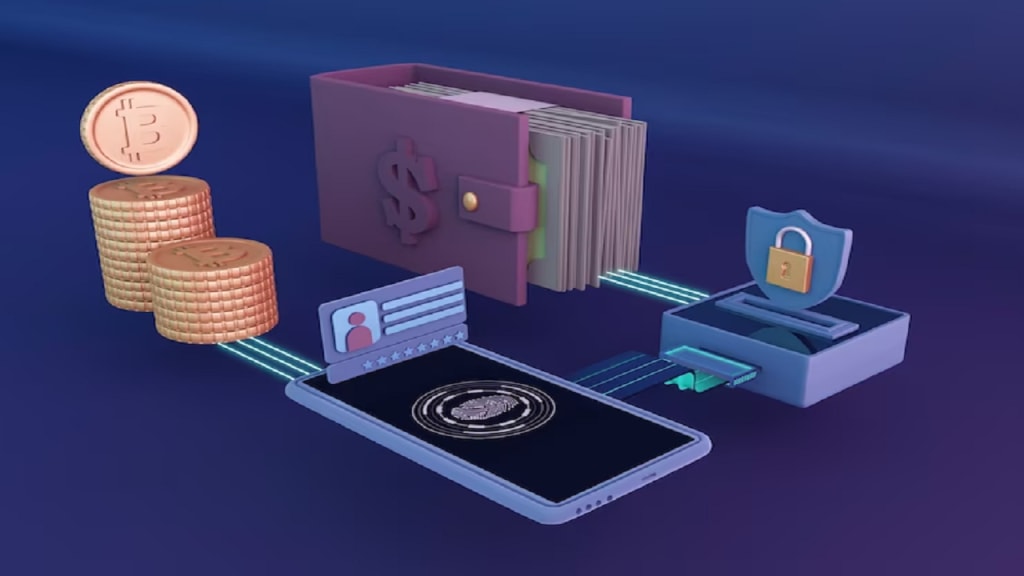
As the world becomes increasingly digitalized, electronic payment systems have become an essential part of everyday life. E-wallet apps have gained immense popularity, providing users with the convenience of making cashless transactions on the go.
The growing adoption of e-wallets has led to the exploration of more secure, transparent, and efficient technologies like blockchain to enhance these applications. This article delves into the role of blockchain in e-wallet app development, highlighting its benefits, challenges, and potential future impact.
Introduction
E-wallet apps serve as digital alternatives to traditional wallets, enabling users to store funds, make payments, and conduct financial transactions using their smartphones. While e-wallets have already transformed the payments landscape, integrating blockchain technology can take them to a new level of security, decentralization, and trustworthiness.
Understanding Blockchain Technology
Blockchain is a distributed ledger technology that records data in a decentralized and immutable manner. It consists of a chain of blocks, each containing a list of transactions. The decentralized nature of blockchain ensures that no single entity has control over the entire network, making it highly resistant to fraud and tampering.
Enhanced Security and Privacy
Blockchain provides an added layer of security for e-wallet apps, making them less susceptible to hacking and unauthorized access. With cryptographic encryption and consensus mechanisms, blockchain ensures that transactions are secure and transparent while maintaining user anonymity. The decentralized architecture reduces the risk of data breaches as there is no single point of failure.
Seamless Cross-Border Transactions
Traditional cross-border transactions often suffer from high fees, delays, and complexities. Blockchain's ability to facilitate peer-to-peer transactions in real-time eliminates the need for intermediaries, reducing transaction costs and improving the speed and efficiency of international transfers.
Smart Contracts for Automated Transactions
Smart contracts are self-executing agreements with predefined conditions written directly into code. Integrating smart contracts into e-wallet apps allows for automatic execution of transactions when specific conditions are met. This feature streamlines various processes like loan disbursements, insurance claims, and supply chain management, reducing paperwork and human intervention.
Loyalty Programs and Tokenization
Blockchain enables the tokenization of assets, converting real-world assets like loyalty points, gift cards, and even real estate into digital tokens. E-wallet apps can leverage this feature to offer users access to diverse loyalty programs and reward schemes, enhancing customer engagement and retention.
Interoperability and Integration
Blockchain's compatibility across platforms and systems enables seamless integration with existing financial services and applications. E-wallet apps can leverage blockchain's interoperability to connect with different banks, payment gateways, and cryptocurrencies, expanding the scope and flexibility of transactions.
Challenges in Blockchain Integration
Despite its potential benefits, integrating blockchain into e-wallet apps presents certain challenges. The scalability issue is one of the significant obstacles, as blockchain networks can become slower and more expensive as the number of users and transactions grows. Additionally, regulatory concerns and the need for mass adoption are key hurdles that the blockchain industry must overcome.
Regulatory Compliance
Blockchain technology operates in a decentralized manner, which can pose challenges in complying with various financial regulations and data privacy laws. Striking a balance between transparency and data protection while adhering to local laws is crucial for e-wallet app developers.
Future Outlook
The role of blockchain in e-wallet app development is poised to expand further in the future. As technology evolves, scalability solutions like sharding and layer-two protocols are expected to improve the performance of blockchain networks. Increased awareness and understanding of blockchain among the general population will drive mass adoption, making blockchain-based e-wallet apps a standard in the digital payments landscape.
Conclusion:
the integration of blockchain technology in e-wallet app development brings numerous benefits and opportunities. Blockchain enhances the security and privacy of e-wallets, making them more resistant to hacking and unauthorized access. The decentralized nature of blockchain ensures transparency and trust in financial transactions while maintaining user anonymity. Additionally, blockchain facilitates seamless cross-border transactions, reduces costs, and improves transaction speed.
The use of smart contracts automates transactions and eliminates the need for intermediaries, streamlining various processes and reducing paperwork. Loyalty programs and tokenization enable e-wallet apps to offer users access to diverse rewards and asset-backed tokens, enhancing customer engagement and retention.
Interoperability and integration capabilities allow e-wallet apps to connect with various financial services, expanding the scope and flexibility of transactions. However, the integration of blockchain technology in e-wallet apps also poses challenges such as scalability, regulatory compliance, and the need for mass adoption.
Looking ahead, advancements in scalability solutions and increased awareness and understanding of blockchain among the general population will contribute to the widespread adoption of blockchain-based e-wallet apps. As technology continues to evolve, blockchain's role in e-wallet app development is expected to expand further, revolutionizing the digital payments landscape and providing users with secure, efficient, and transparent financial solutions.
About the Creator
Bhavika
Bhavika is the SEO Executive.






Comments
There are no comments for this story
Be the first to respond and start the conversation.